Hãy nhập câu hỏi của bạn vào đây, nếu là tài khoản VIP, bạn sẽ được ưu tiên trả lời.

a) Cách 1: y' = (9 -2x)'(2x3- 9x2 +1) +(9 -2x)(2x3- 9x2 +1)' = -2(2x3- 9x2 +1) +(9 -2x)(6x2 -18x) = -16x3 +108x2 -162x -2.
Cách 2: y = -4x4 +36x3 -81x2 -2x +9, do đó
y' = -16x3 +108x2 -162x -2.
b) y' = .(7x -3) +
(7x -3)'=
(7x -3) +7
.
c) y' = (x -2)'√(x2 +1) + (x -2)(√x2 +1)' = √(x2 +1) + (x -2) = √(x2 +1) + (x -2)
= √(x2 +1) +
=
.
d) y' = 2tanx.(tanx)' - (x2)' =
.
e) y' = sin
=
sin
.

\(\sqrt{x}+\dfrac{1}{\sqrt{x}}+\dfrac{x^{10}}{10}=U+V+T\)
\(\left\{{}\begin{matrix}U^2=x;\\V^2=\dfrac{1}{x}\\Y'=U'+V'+T'\end{matrix}\right.\) \(\begin{matrix}\left(1\right)\\\left(2\right)\\\left(3\right)\end{matrix}\)
\(\left(1\right)\Leftrightarrow U'=\dfrac{1}{2U}=\dfrac{1}{2\sqrt{x}}\)
(2) \(\Leftrightarrow V'=\dfrac{-1}{x^2.2V}=\dfrac{-1}{2x^2.\dfrac{1}{\sqrt{x}}}=\dfrac{-1}{2.\sqrt[3]{x^2}}\)
\(\left(3\right)\Leftrightarrow Y'=\dfrac{1}{2\sqrt{x}}-\dfrac{1}{2\sqrt[3]{x^2}}+x^9\)
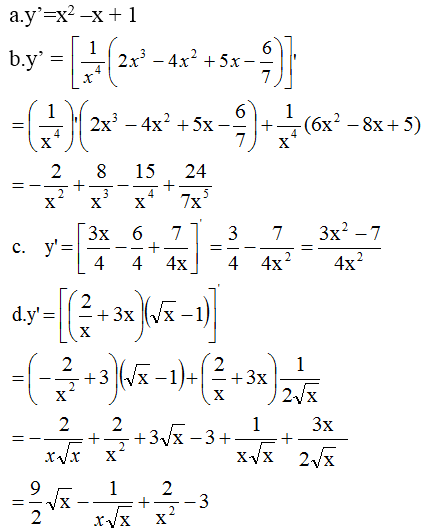
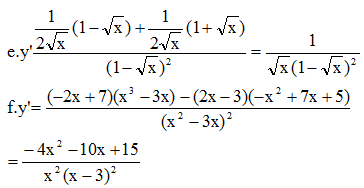
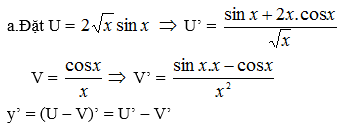
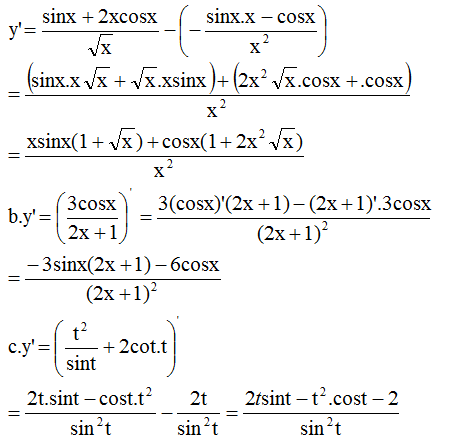
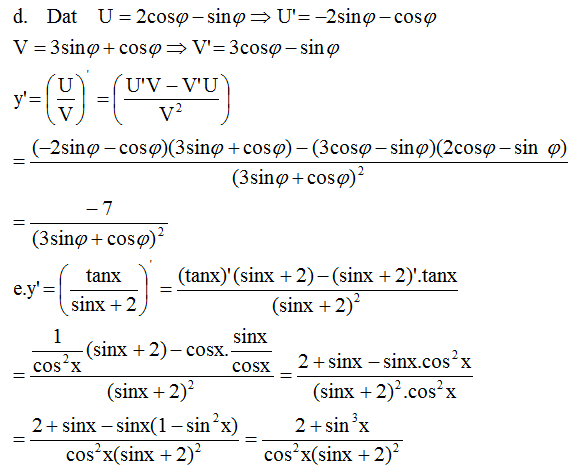
\(y'=\dfrac{1}{2\sqrt{x-1}}+\dfrac{1}{\sqrt{2x+1}}\)
\(\Rightarrow y'\left(3\right)=\dfrac{1}{2\sqrt{2}}+\dfrac{1}{\sqrt{7}}\Rightarrow\left\{{}\begin{matrix}a=\dfrac{1}{2}\\b=1\end{matrix}\right.\Rightarrow a+b=\dfrac{3}{2}\)